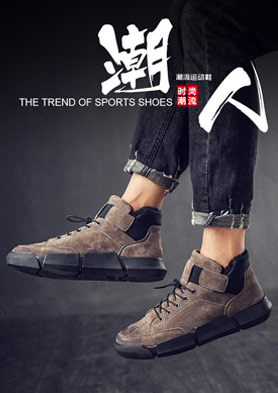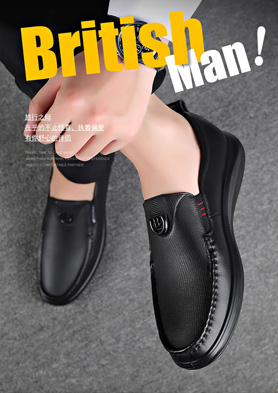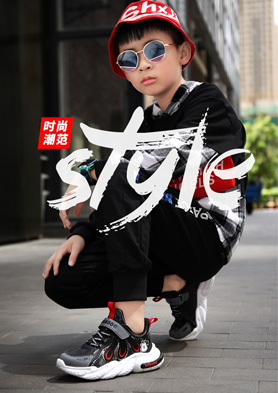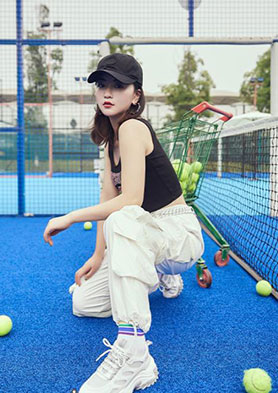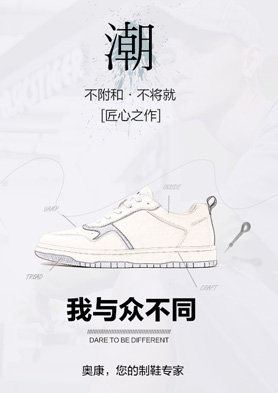��������20%���ͻ�Ҫ��ǰ��ӡ�ȣ����۱�Խ�ϸ�20��

����һ���������꣬�ú����еĿ����������Ŵӵ����ϴܵ�������
A brief afternoon shower left Hai Phong City steaming, with heat vapors rising from the ground.
���ŷ�î��ҵ����˾(�Nî��ҵ����˾)�ܾ���ׯ�ῥ�ĽŲ��߽���Ь����������ؽ�����������ÿ�����Ÿ�������Ь�ӵ������Nî��һ��ר����������֪���˶�ЬƷ�ƵĴ�������
Following Zhuang Feng-jun, general manager of Fengmao Industrial Co., Ltd., into the shoe factory, he enthusiastically explained the tasks each department on the production line carries out. Fengmao is an OEM that manufactures shoes for well-known U.S. athletic brands.
̸��������ͳ���յĶԵȹ�˰��Խ�ϼ���46%��˰�ʣ�ׯ�ῥ��ʾ��������ռ�ù�˾����������40%��4��2��֮�����������̾ͳ�����������˾�ӵ��Ķ�����ή��Լ20%��
Discussing U.S. President Trump��s 46 percent reciprocal tariff on Vietnam, Zhuang said the U.S. market accounts for 40 percent of the company��s exports; after April 2, American importers cut volumes and Fengmao��s orders shrank by about 20 percent.
���Nî������ǰ�ں��Ⲽ�֣�2018��㵽ӡ��Ͷ���賧����ӡ������Ź�˾����(TATA)��������Ь�ӡ�
Fengmao had long planned overseas expansion: in 2018 it invested in a plant in India, partnering with the country��s largest conglomerate, Tata, to produce shoes.
ׯ�ῥ��ʾ�������1989�굽ӡ��������Ь����ֱ��1998�걬�����ģ���Ż��˶��ų�����������Խ������
Zhuang noted that his family set up a shoe factory in Indonesia in 1989 but withdrew after the large-scale anti-Chinese riots in 1998, relocating to Vietnam where they remain.
�б���̨��2018�괨��1.0ó��սʱ��Ϊ���ͳ�����ԡ�+1�����ڽ���Խ��Ͷ�ʣ�ׯ�ῥ����Խ��Ϊ�ݵ㣬����ӡ�ȣ�ٲȻ�ǡ�Խ��+1��ģʽ��
Unlike many Taiwanese firms that adopted a ��China + 1�� strategy during Trump��s 2018 trade war by investing in nearby Vietnam, Zhuang uses Vietnam as his base and expands into India��effectively a ��Vietnam + 1�� model.
����Ϊ��ѡ��ӡ�ȣ�ׯ�ῥ��ʾ��̨��ǰ��ӡ����Ҫ��Ӧ�ͻ�Ҫ����Ϊӡ�ȵ��г��ϴ���ӡ��������Ь��������Ϊ�������۱�Խ�ϸ�20%����
As to why India, Zhuang said Taiwanese companies go there mainly at customers�� request because the market is larger: ��Shoes made in India are mainly sold domestically and fetch prices 20 percent higher than in Vietnam.��
��������Խ�ϼ�ӡ������Ь����������ϣ������ɽ��ڣ����Ե��ع�Ӧ������������
However, the fabrics needed to produce shoes in both Vietnam and India are imported from China, underscoring that local supply chains are still incomplete.
ׯ�ῥ��ʾ����90���˰�����������нӵ����������������࣬�ͻ�Ӧ���ڹ���7��9�յ��ں�����ơ�����Ԥ�⣬�Դ����Ʊ�ĸ��ԣ��п���չ�ӻ����ڡ�
Zhuang said orders are still coming in during the 90-day tariff grace period, though not many; customers are clearly waiting to see what happens after the July 9 deadline. He boldly predicts that, given Trump��s unpredictable nature, the grace period may be extended.
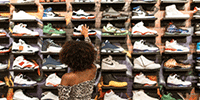
9��3�գ�ȫ������˶�Ь������ԣԪ���ʷ�������ƣ��ܵ�2021��7�������Ͼ���Խ������Ӱ�죬����������ȡ��Ϊ�Ͻ��ķ��ߴ�ʩ������...
[��ϸ]
- ������ʯͷ���������´�ϵ�У�ͬ�����ϼܣ�
- ʮ���ˣ���һ˫���Ʊ�սѥ���״λع飡
- ���ڵ���˫��ɫսѥ��KD6 ��Aunt Pearl�� ȷ���ع飡
- ����ʼ��� AJ1 OG ����Ҫ�ع���...
- ����ʮ�����״θ��̣���˫������Ĺ� �����䡱 ...
- ŷ���״�����̤��ŷ���������״��ع⣡��������Ҳ���ˣ�
- ��ܽ��
- Charles&Keith
- ����ͷ
- �ް�
- ����ӡ��
- Ħ������
- Ľ����
- ���˾���
- ������
- ���ǵ�
- ľ��ɭ
- ����
- �ᶡ
- ��
- Ϭţ
- ľľ��
- ABCͯЬ
- �濨ܽ
- ������
- ��¶






